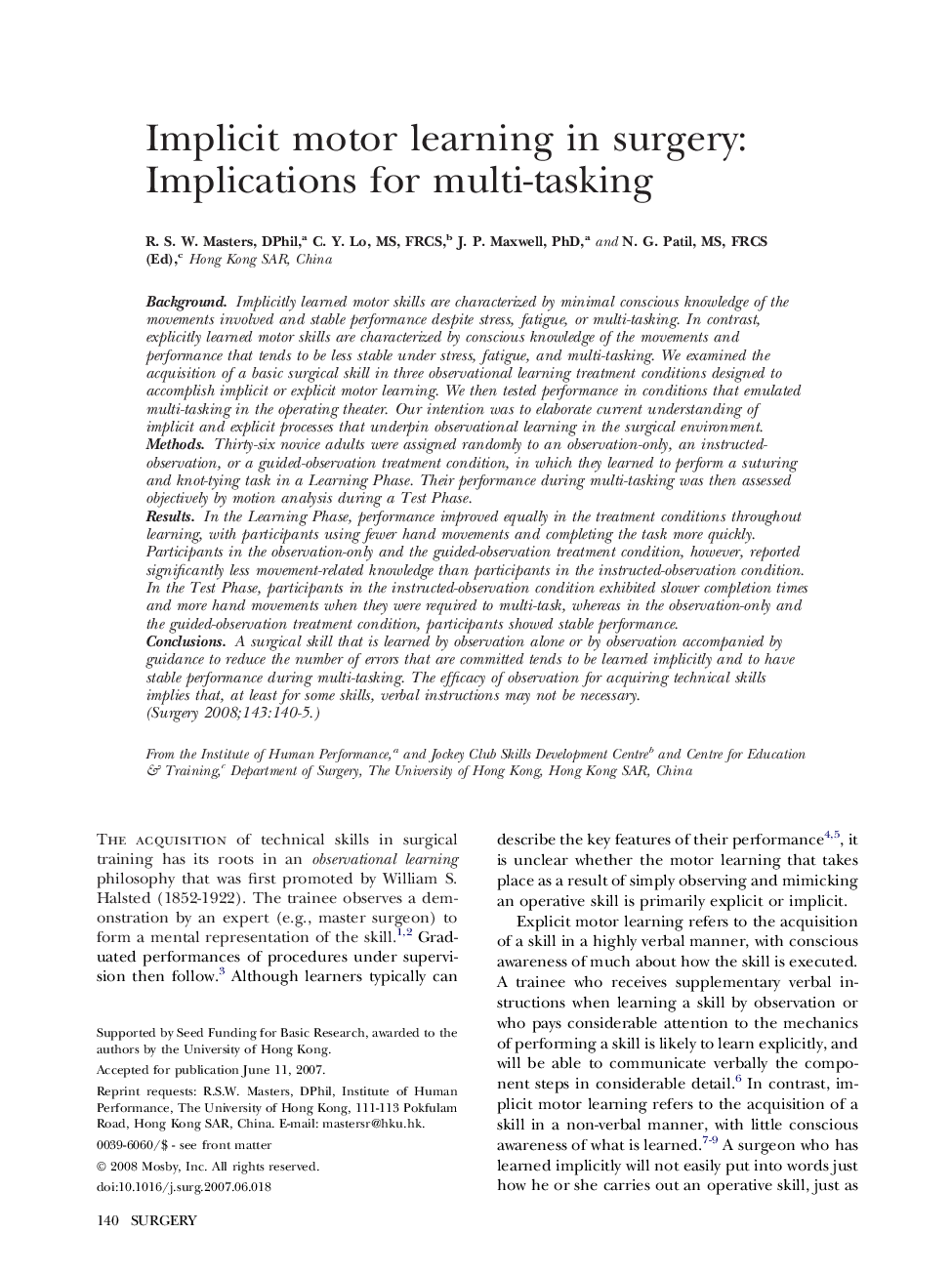| کد مقاله | کد نشریه | سال انتشار | مقاله انگلیسی | نسخه تمام متن |
|---|---|---|---|---|
| 4308440 | 1289280 | 2008 | 6 صفحه PDF | دانلود رایگان |

BackgroundImplicitly learned motor skills are characterized by minimal conscious knowledge of the movements involved and stable performance despite stress, fatigue, or multi-tasking. In contrast, explicitly learned motor skills are characterized by conscious knowledge of the movements and performance that tends to be less stable under stress, fatigue, and multi-tasking. We examined the acquisition of a basic surgical skill in three observational learning treatment conditions designed to accomplish implicit or explicit motor learning. We then tested performance in conditions that emulated multi-tasking in the operating theater. Our intention was to elaborate current understanding of implicit and explicit processes that underpin observational learning in the surgical environment.MethodsThirty-six novice adults were assigned randomly to an observation-only, an instructed-observation, or a guided-observation treatment condition, in which they learned to perform a suturing and knot-tying task in a Learning Phase. Their performance during multi-tasking was then assessed objectively by motion analysis during a Test Phase.ResultsIn the Learning Phase, performance improved equally in the treatment conditions throughout learning, with participants using fewer hand movements and completing the task more quickly. Participants in the observation-only and the guided-observation treatment condition, however, reported significantly less movement-related knowledge than participants in the instructed-observation condition. In the Test Phase, participants in the instructed-observation condition exhibited slower completion times and more hand movements when they were required to multi-task, whereas in the observation-only and the guided-observation treatment condition, participants showed stable performance.ConclusionsA surgical skill that is learned by observation alone or by observation accompanied by guidance to reduce the number of errors that are committed tends to be learned implicitly and to have stable performance during multi-tasking. The efficacy of observation for acquiring technical skills implies that, at least for some skills, verbal instructions may not be necessary.
Journal: Surgery - Volume 143, Issue 1, January 2008, Pages 140–145